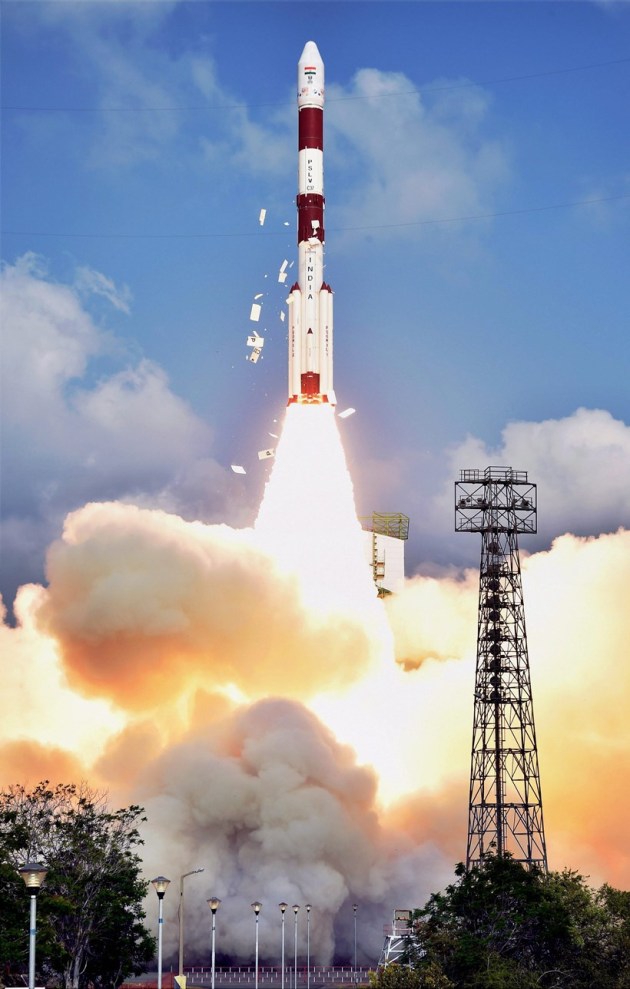India scripts history, ISRO launches 104 satellites at one go
ISRO's latest launch not only created a world record for launching the highest number of satellites simultaneously, it was also achieved with minimal costs.
February 15, 2017 18:57 IST 1 / 6
1 / 6Space agency Indian Space Research Organisation (ISRO) successfully launched a record 104 satellites, from the spaceport of Sriharikota on Wednesday. (Source: AP)
 2 / 6
2 / 6Among the satelites was Indias earth observation satellite on-board PSLV-C37/Cartosat2 Series. The Cartosat satellite is the fourth one in the Cartosat-2 series of earth observation satellites. The Cartosat-2 Series satellite have a mission life of five years and will be used for remote sensing services. The images sent by these satellites will be used for a number of purposes such as coastal land use and regulation, road network monitoring, distribution of water and creation of land use maps etc. (Source: AP)
 3 / 6
3 / 6Out of the 104 satellites three are Indian, 88 are from the USA and the rest from Germany, Israel, Kazakhstan, the Netherlands, Switzerland, and the United Arab Emirates. The previous record was held by Russia’s Dnepr rocket which launched 37 satellites into space, but India’s achievement today overshoots that by a long margin. (Source: AP )
 4 / 6
4 / 6ISRO's PSLV-C37 cost a measly $15 million to launch. In comparison, SpaceX offer the same service for roughly around $60 million. NASA used to spend upwards of $100 million to send satellites into space. Thus making India's offer the most cost effective for sending satellites into space amongst all the space-capable nations. And, with success of this launch it has carved outs its own niche. (Source: AP)
 5 / 6
5 / 6Among other major achievement of ISRO is also the Mars Orbiter Mission (MOM) or the Mangalyaan mission. The Mars Orbiter was launched in November 2013, was India’s first inter-planetary mission and cost the nation just $73 million (Rs. 450 crore). It was also the least expensive mission to Mars ever. In comparison, NASA’s MAVEN Mars Orbiter cost $672 million. (Source: AP)
 6 / 6
6 / 6For future projects ISRO is working on sending a probe to Venus, the second planet, and possibly the most hostile, in our solar system. In fact, ISRO has a mission to Mars and Venus slated for 2021-2022 time frame. France has expressed strong interest in collaborating on building the next Mars Rover for India’s mission to Mars. Meanwhile, NASA and ISRO have already initiated talks on trying to jointly undertake studies on using electrical propulsion for powering this mission. (Source: AP)











